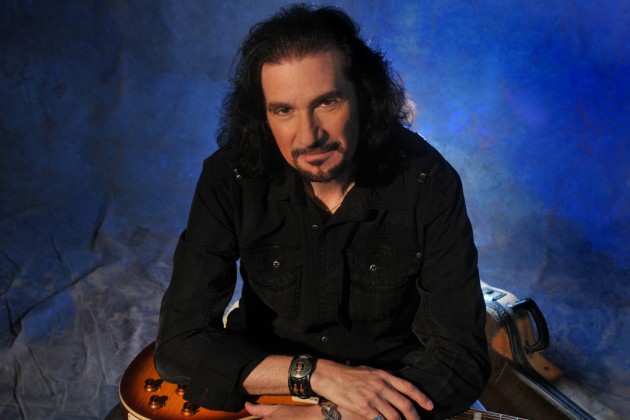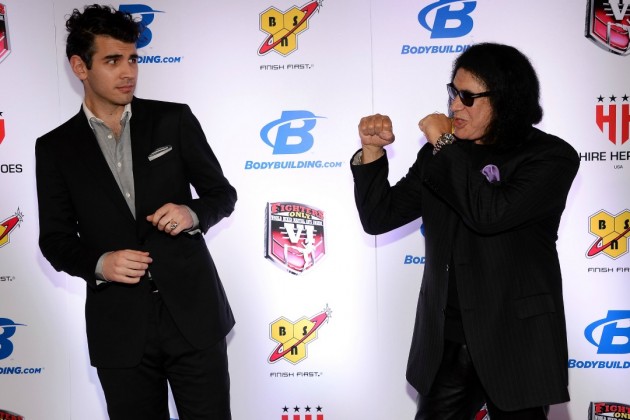Michael Brandvold
<iframe width=”640″ height=”360″ src=”https://www.youtube.com/embed/1wxHPCEGYJU” frameborder=”0″ allowfullscreen></iframe>

Michael Brandvold
<iframe width=”640″ height=”360″ src=”https://www.youtube.com/embed/1wxHPCEGYJU” frameborder=”0″ allowfullscreen></iframe>
Opportunity Rocks
Steve Mascord
@WLFpodcast talks to rugby POW Sol Mokdad in Exeter, we dig out a Paul Stanley chat from Lubbock, Texas, 25 years ago plus the conclusion of our chats with Jesper Binzer of Disneyland After Dark, Crash of H.e.a.t and Michael Harrison from Palace of the King
Cassius Morris
Matt Wardlaw | Ultimate Classic Rock

Jim McGuire
We spoke with former Kiss guitarist Bruce Kulick last year for an extensive two-part interview as he marked the 30th anniversary of joining the band and he had plenty of great stories to share regarding his 12-year run with the group.
During that chat, he spoke about his early influences, guitarists like Jimi Hendrix, Eric Clapton and Jimmy Page and Steve Howe of Yes and in the process, dropped a hint at that time in regards to his planned activities for the new year.
“I listened to Yes a lot when I was young,” he said. “I loved Steve Howe, who is very different than Eric Clapton, but a very creative guitar player. I still love Yes. I’m going to be putting out in 2015 a band that I had from 40 years ago and we just cut a new song. I would say that we were a cross between like a kind of Cream and Yes because there’s a lot of sections that are very progressive.”
More than 40 years after Kulick went into the recording studio to lay down tracks with singer/bassist Mike Katz and drummer Guy Bois, fans now have the chance to hear the recorded results of those early sessions with the project that was effectively his first band called KKB. Incredibly, the songs have been freshly remixed and remastered from the original session tapes which had been lost for a number of years but happily, Katz found them in 2013 and got in touch with Kulick, who quickly made plans to revisit and release the material.
As referenced, there’s even some new music to enjoy — the original three members came together virtually to record their first new song since the original sessions in 1974. “Got to Get Back” is the result of that new collaboration and fits in seamlessly with the ‘70s material.
On an early Saturday morning recently, Kulick spent some time discussing the vintage recordings with us and how the new song and EP came together. We also discussed Blackjack, his hard rock band with Michael Bolton that came about at the end of the ‘70s and also, his work with Billy Squier on the The Tale of the Tape album.
The story of this KKB release is pretty incredible. Many folks have fond memories and maybe some recordings of that first band in their early days of playing music, but it just doesn’t usually happen that you find the multi-tracks of that material. I don’t know how much you thought about this stuff over the years, but it had to be a pretty incredible feeling, having that realization that you not only had those tapes, but you could revisit them and perhaps address some things that you all collectively might have wished you had done at the time.
Well, it was really exciting once Mike Katz, the principal singer/songwriter, found them. I did have a version of it that I remember playing Gene [Simmons] and Eric [Carr] years ago and them going, “Wow, this is pretty cool.” It was just like a footnote or whatever, just saying, “Hey, check out what I was doing when I was 20.” I’ve been trying to archive as much as I can, because we all know that the different mediums of music do degrade and you have to be careful about that if you’re trying to preserve things.
So I know I was transferring and digitizing a lot of things from even rehearsals with Michael Bolton for Blackjack and live gigs and then songwriting with him, which was late ‘70s. The reason why I bring it up is that I found this King Biscuit Flower Hour performance that I only had on a cassette, which is why I needed to digitize it. There’s this jam section of the live gig where we all went off and did our own thing, where Sandy Gennaro played some drums and then I go into a riff — and the riff was the riff that I contributed to this [KKB] song called “Trying to Find a Way.” I go, “Oh my God!”
So here it is in ‘79 and I realized, even though we weren’t going to go into that song, we needed a link in the performance between drum solo, bass riff, into something else, right? So that freaked me out — I always knew that I had that live King Biscuit Flower Hour performance, which was mostly songs from our album — and I think we might have done a cover song, like “Rocky Mountain Way” was something that I know I would do with Michael sometimes — but that was crazy, that there was that riff from KKB. So it wasn’t as if I completely ignored it and I know you started the question with saying that it was an early band — I don’t even know if we called ourselves a band.
The whole thing was just getting together and creating these songs that Mike was very clear about. As you can tell, since you digested the music, they’re pretty complex. Some of them are very, you know, there’s time signatures and there’s tricky riffs and to think I was doing that at such a young age was for myself, something I was very proud of myself.
Read More: Former Kiss Guitarist Bruce Kulick on Revisiting His First Band and More: Exclusive Interview | http://ultimateclassicrock.com/bruce-kulick-interview-2015/?trackback=tsmclip
Jeff Giles | Ultimate Classic Rock

Ethan Miller
When we’re kids, our fathers can seem impossibly huge and infallible, and getting to know them as adults — and understand their real personalities and human foibles — is often an unexpected, and very liberating, experience. And if your dad is Gene Simmons? Multiply all that by about a thousand.
That’s the impression given, anyway, by an affectionate and funny Vice editorial written by Simmons’ son Nick. Titled “My Dad, Gene Simmons, Is Full of S— and So Are You,” it looks back on the younger Simmons’ experiences living with the Kiss co-founder for a father — and his eventual realization that even if his dad has millions of fans who love him as their fire-spewing Demon, he’s still just a guy.
“I thought everything my father said was written in stone, and wrought from ages of experience and trial,” writes Nick. “But as I grew and he began to shrink, I started to see the cracks. I started seeing his pores, his grey hairs — those small flaws that made him human.”
And as anyone who’s been through this experience with their own parents understands, that dawning realization doesn’t necessarily mean seeing your father as somehow diminished; in fact, it can often lead to a richer and more rewarding relationship, as Nick argues has definitely been the case for the Simmons men.
A large chunk of the essay, which is well worth reading in full, looks back on the first time Simmons realized he disagreed with his father, and points to that moment as the beginning of the end for their lopsided personal dynamic. “It’s important to disagree. It’s important to kill your heroes. And, sometimes, you have to kill your father,” he reflects. “Kill him so you can love him, and his flaws, better than one can love a hollow archetype. The most important thing he taught me is that — just like everyone else — sometimes, he is full of shit.”
Chris Czynszak
Michael Brandvold